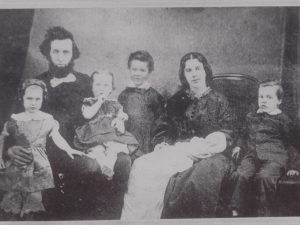Researchers wanted to determine two things: After the training, would participants’ behavior become more altruistic? Would their brains respond differently to suffering?
New research says yes, through meditation.
When you hear the word “training,” you probably think of how your body can achieve various tasks, like learning an instrument or exercise, through repetitive practice. While it’s no secret you can teach your body to achieve different feats, research has shown you can teach your mind to be more compassionate.
A study conducted by Helen Weng at the University of Wisconsin-Madison’s Center for Investigating Healthy Minds, “Compassion Training Alters Altruism and Neural Responses to Suffering” found that compassion is more than a trait you’re born with; it’s a skill you can train.
“The idea that compassion is something that you can work on is kind of new for most people,” said Weng, a clinical psychologist and neuroscientist. “How much do we hear, ‘If you practice being kind to other people, you’ll become a more kind person’? It makes intuitive sense, though we’re not as encouraged to work on those kinds of qualities within ourselves.”
For the study, researchers turned to the ancient practice of compassion meditation, something Weng became interested in as a teenager. In it, people practice wishing kindness and compassion toward people who are suffering, including a loved one, themselves, a stranger, and someone with whom they have difficulty with. Participants with no prior meditation experience were randomly assigned compassion or reappraisal training, which is re-interpreting negative events to decrease negative emotions.
Both groups listened to online guided audio instructions 30 minutes a day for two weeks, totaling seven hours. Ultimately, researchers wanted to determine two things: After the training, would participants’ behavior become more altruistic? Would their brains respond differently to suffering?
– Read “Christian Meditation: Experiencing the Presence of God” (HarperOne, 2004) by James Finley for an introduction to an ancient practice that allows us to experience the presence of God.
The results found participants who practiced compassion meditation behaved more altruistically toward strangers compared to those who learned reappraisal training when given the opportunity to spend their own money to help strangers in need in an economic exchange game.
Scientists conducted brain scans before and after training, and determined that the most altruistic participants who learned compassion training showed the greatest changes in brain activation. The changes occurred in the brain regions involved in emotional control, rewards and empathy when looking at images of people suffering.
So how does one begin compassion training? Weng encourages an individualized approach that begins with slow steps to fit personal needs.
“People should move at their own pace with whoever they want to practice with and really gauge the progress in their own life,” Weng said. “If you practice with a friend you’re having a conflict with, what happens next when you actually interact with them? Does it make it a little easier? Is it easier to see their perspective? Can you slow yourself down a little bit? Can you have a difficult conversation that you need to have?”
It matters because relationships impact our health. A study, “Social Relationships and Mortality Risk,” found people with stronger social relationships lived longer than those with weaker social relationships. Showing compassion toward others can improve your relationships and your health.
“There’s a cultural expectation that if we don’t feel good, we have to do something immediately to feel better…Similarly, when we encounter someone we love who’s having a hard time, sometimes our knee-jerk reaction is to make them feel better—right in the moment,” Weng said. “I think we’ve all had experiences where someone tried to cheer us up right away. It can actually make us feel worse…So part of the exercise, if you practice it or read the instructions, is to just notice whatever sensations come up and to slow down your response. In this way, you can just be present with someone else’s feelings which can help them feel understood.”

The impact of the effort can be far reaching.
“While this contemporary study tries to quantify in practical terms the benefits of meditation, we should not think this is a new concept. Meditation is one of the oldest Christian disciplines, which has been practiced for centuries,” said Dr. Jack Anderson, Director of Officer Care and Development in The Salvation Army Western Territory. “Science, particularly neuropsychology, is now able to begin studying the profound impact that meditation can have on emotional, physical, spiritual and relational well-being.”
And meditation is simple to do, Anderson said.
“You can start by taking just five minutes of your day, finding a quiet space, and reflecting on one thought or one verse,” he said. For instance: “Be still, and know that I am God” (Ps. 46:10a). “Let your mind and body get absorbed in the moment, and you will have begun a practice of meditation.”
While Weng thinks the early research is promising, she’s quick to note more needs to be done.
Johanne Lauktien, founder of Yoga Instruction and Healing for Cancer Survivors in Phoenix, Arizona, joined the ongoing research to document the long-term effects of meditation on the brain.
She routinely travels to Madison, Wisconsin, to participate in the study’s collaborative research effort. Her visits involve fMRI tests at the University of Wisconsin-Madison for more than two hours and eight hours of meditation for two days at Center for Healthy Minds. She also gets wired up for an overnight stay at a Sleep Clinic, where she wakes every hour or so to record her dreams.
“I am not going to lie and say, ‘It’s super cool.’ It’s an ordeal,” Lauktien said. “But I believe in the positive effects of compassion and meditation. We need them more than ever in our society.”
She’s experienced the benefits of compassion training in her work at cancer centers as a holistic health instructor, and said that caring for cancer patients and survivors with compassion and empathy brings her happiness.
While compassion meditation may not come naturally at first, Lautkien said she believes that with practice, it could benefit everyone.
“It has a magical spillover effect—how we relate to ourselves and others improving our social connections. We can all greatly benefit from this,” Lautkien said. “It’s so important to remember: What is our life about? My life is to help others, to serve others and to open my heart to the world.”












